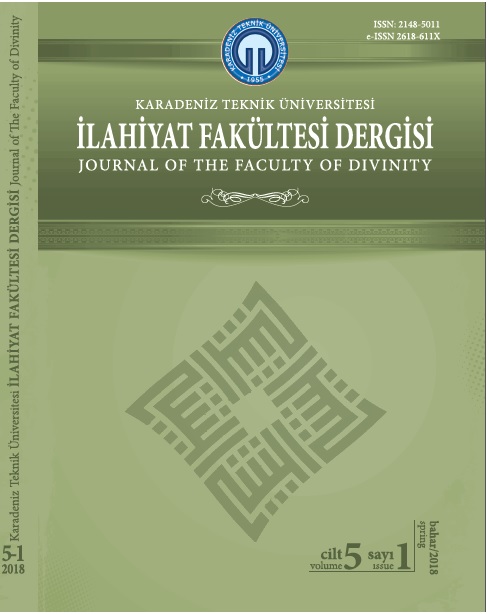Debûsî ve Semerkandî'nin Fıkıh Usulünde “Kapalı Lafızlar” Konusuna Yaklaşımları ve Görüşlerinin Mukayesesi
Dabusî and Samarqandî's Approach to the Subject of "Covered Speech" in Usûl al-Fıqh and its Comparisons
Author(s): Abdullah KavalcıoğluSubject(s): Anthropology, Social Sciences, Sociology, Theology and Religion, Islam studies
Published by: Karadeniz Teknik Üniversites - İlahiyat Fakültesi
Keywords: Usûl al-Fiqh; Hafî; Mushkil; Mujmal; Mutashabih;
Summary/Abstract: One of the most important issues for fiqh scholars is to determine an appropriate method in understanding the “nass” that are deduced from the Qur’an and sunna. Therefore, the subject of literal discussions and its rules which are needed to understand the expressions of the “nass” are the most important subjects of the discipline, usul al-fiqh. Another issue that is argued within the scope of literal discussions is the categorization of the words in terms of their ambiguity. According to the categorization generally accepted by the Hanafi scholars, these words are divided into some parts such as khafi, mushkil, mujmal, and mutashabih. Hanafi scholars discussed this issue from two perspectives. While the first one is related to the question, how can it be possible to eliminate the ambiguity of the words, the second one is about the verdict that is expressed by these words. Among the Hanafi scholars, Abū Zayd al-Dabūsī (d. 430) is the first methodologist who discusses the categorization of the words in a systematical way. Alauddin al-Samarqandi (d. 539) also scrutinized the subject of literal discussions in terms of its ambiguity. However, there are some differences between the views of these two scholars even though both of them are Hanafi. In this study, the views of Abū Zayd al-Dabūsī and Alauddin al-Samarqandi will be analyzed comparatively on the basis of their works.
Journal: Trabzon İlahiyat Dergisi
- Issue Year: 5/2018
- Issue No: 1
- Page Range: 61-85
- Page Count: 25
- Language: Turkish

